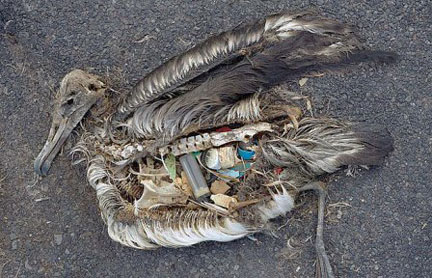Plastic pollution is a growing concern: It is found almost in everything, like in beverages, food, clothes, cleaning agents and technologies. The plastic gets in the ocean and it poses a serious threat for the marine wildlife of the whole food chain. Finally, the human will ingest the plastic at the end of the food chain. It is estimated that around eight million tons of plastic per year gets in the ocean worldwide. The consequence would be that there will be more plastic than fish in the ocean by 2025. It is obvious that everyone must take the initiative to reduce its own plastic consumption.
You can start already to become plastic-free in the bathroom. Most hygiene products are made of plastic and are also packed with plastic, for example shampoos, conditioners, toothpaste, soap and detergents. Buying bar versions of both shampoo and conditioner are a great alternative. Also, soap bars instead of liquid hand soap reduce your plastic use. The Funky Soap Shop (https://www.funkysoapshop.com/) offers vegan hygiene products, which are handmade from 100 % natural ingredients. Of course, you can make your own hygiene products. You can find a lot of instructions on the internet, like https://www.instructables.com/id/Homemade-Shampoo/ or https://www.diynatural.com/homemade-shampoo-bar-diy/. Furthermore, you can swap your plastic toothbrushes for bamboo toothbrushes. Finally, you can buy recycled toilet paper that doesn’t come in plastic packaging, like the Greencane toilet paper (https://greencane.com/shop/united-kingdom). It is made from recycled bamboo and sugar cane and guarantees completely plastic-free packaging.
Also, there are plenty of plastic-free alternatives for the kitchen. It is assumed that over 35 million plastic bottles per day are only used in the UK. Taking a reusable bottle is a great option. Moreover, carrying a cloth bag instead of a plastic bag is another easy alternative to reduce your plastic consumption. It is estimated that around 2.5 billion coffee cups are thrown away every year in the UK alone. You can reduce this large amount by taking a reusable coffee cup or flask. Next, you can use metal straws instead of plastic straws. Another option to go plastic-free is to shop local farmers market, which a great way to buy fresh, local produce without plastic. It is also possible to return containers of small fruits and vegetables to the farmer market to be reused. If there is no farmer market near you, you can buy loose fruits and vegetables instead of food packaged in plastic in the supermarket. There is also a growing number of zero-waste shops which offer food that is completely free from packaging, like rice, pasta, flour, coffee and spices. You can also choose milk in glass bottles, which are reused and recycled. Finally, if you are take-out food, carry your own containers and glass cutlery instead of plastic cutlery.
If you would like to engage more, there are a lot of organizations which fight against the plastic pollution, like the Plastic Bank, Fishing4plastic and the Pacific garbage screening.

























